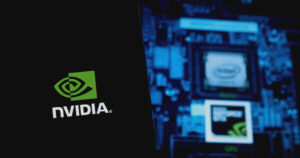NVIDIA Launches CUDA-QX Libraries: A Leap Forward in Quantum Supercomputing
By James Ding | Extreme Investor Network | Nov 18, 2024
In a significant development for the tech world, NVIDIA has unveiled its latest innovation: the CUDA-QX libraries. These groundbreaking tools aim to revolutionize the landscape of quantum supercomputing by seamlessly merging quantum processing units (QPUs) with traditional CPU and GPU frameworks. For crypto enthusiasts and investors keen on understanding the intersection between AI and quantum computing, this news is not just a technological advancement; it’s a glimpse into the future of computational power.

Transforming Quantum Computing with AI
The launch of CUDA-QX represents NVIDIA’s strategic initiative to integrate artificial intelligence with quantum computing capabilities. By addressing the complex demands of modern computational challenges, these libraries provide a robust framework for hybrid applications that leverage both quantum and classical computing.
What Sets CUDA-QX Apart?
One of the standout features of CUDA-QX is its highly optimized programming model tailored for hybrid quantum-classical applications. Scientists can now manage QPU hardware control with the inclusion of real-time quantum error correction (QEC), a critical feature for those working on fault-tolerant quantum systems.
Key Features You Should Know About
-
Optimized Kernels and APIs: These libraries provide specialized access to quantum computing primitives, making it significantly easier for researchers to tap into GPU acceleration. This shift allows innovators to devote more energy to groundbreaking scientific research instead of getting bogged down with code optimization.
- Dual Library Release: The initial CUDA-QX offering includes two essential libraries:
- CUDA-Q QEC: This library is pivotal for advancing quantum error correction methods, essential for developing reliable quantum computers. Researchers have the flexibility to utilize established QEC codes or tailor their own solutions, making it a versatile tool for experimenting with AI-driven algorithms.
- CUDA-Q Solvers: This component speeds up quantum applications like the variational quantum eigensolver (VQE) and the quantum approximate optimization algorithm (QAOA). Its practical applications in fields such as chemistry are currently being explored in partnerships, including one with GE Vernova Advanced Research.
The Future of Quantum Research
As NVIDIA positions its CUDA-QX libraries as the cornerstone for integrating AI tools into quantum research workflows, we at Extreme Investor Network believe that this development is a game-changer. The libraries will undoubtedly streamline the process of developing hybrid quantum-classical applications, opening doors for unprecedented innovations in both industry and academia.
For those engaged in the realm of cryptocurrency and blockchain, the implications of enhanced quantum computing capabilities are profound. Quantum computing holds the potential to redefine existing cryptographic protocols, ushering in an era of secure transactions and leading to transformative changes in the financial sector.
Get Started with CUDA-QX
Are you a researcher eager to dive into the world of quantum computing? NVIDIA’s CUDA-QX libraries are readily available for installation, and detailed documentation is provided to guide users through the setup and usage processes.
Stay ahead of the curve! As technology continues to evolve, those who are informed and equipped to adapt will thrive. Subscribe to the Extreme Investor Network for more insights, trends, and updates that matter in your investment journey.
Image Source: Shutterstock
This revamped article provides more context, emphasizes the relevance of quantum computing in the context of cryptocurrency, and encourages readers to engage with the information in a way that connects it back to their interests in investing and technology.

